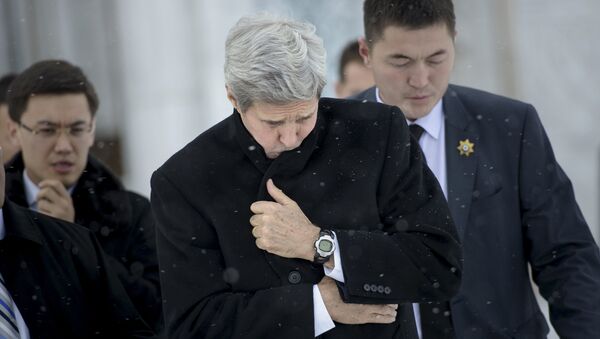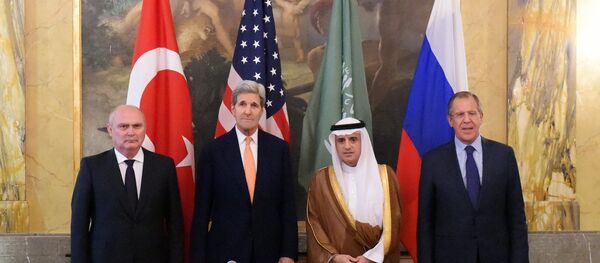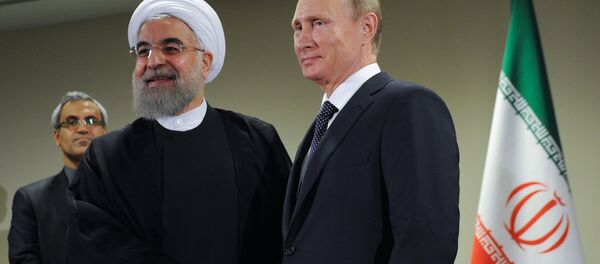This is the first visit by a US Secretary of State to all five ex-Soviet Central Asian countries.
A number of issues are on the agenda, including regional and global security, the fight against terrorism as well as bilateral ties between Washington and the region.
In Samarkand, Uzbekistan Kerry also held a meeting with all top diplomats of the region.
The US has intensified its role in Central Asia to compensate for their losses in the Middle East where Russia has recently emerged as a significant player.
"It was a surprise for the US. Russia has emerged as a major player in the Middle East, a region traditionally dominated by Washington. The US is now sending a signal it could bolster its influence in Central Asia," he told Radio Sputnik.
"The US still keeps its forces on the ground in Afghanistan. I believe Washington wants to create a coalition against the Islamist threat in Central Asia and deepen its ties with the region," he added.
"Washington knows that if its troops are withdrawn from Afghanistan it will lose the country forever. At least, Central Asian countries would pay more attention to various Eurasian security blocs, like the Shanghai Cooperation Organization, the Collective Security Treaty Organization etc. Thus, Russia’s influence will grow," Mezhuev pointed out.
According to him, now the US is trying to prove it can retain both military and political influence in Central Asia.
"This is why all that is happening. It’s just a typical 'grand chessboard', as Bzhezhinsky described it. Washington is letting Russia know that its role in the region is both a military and political one," he concluded.



